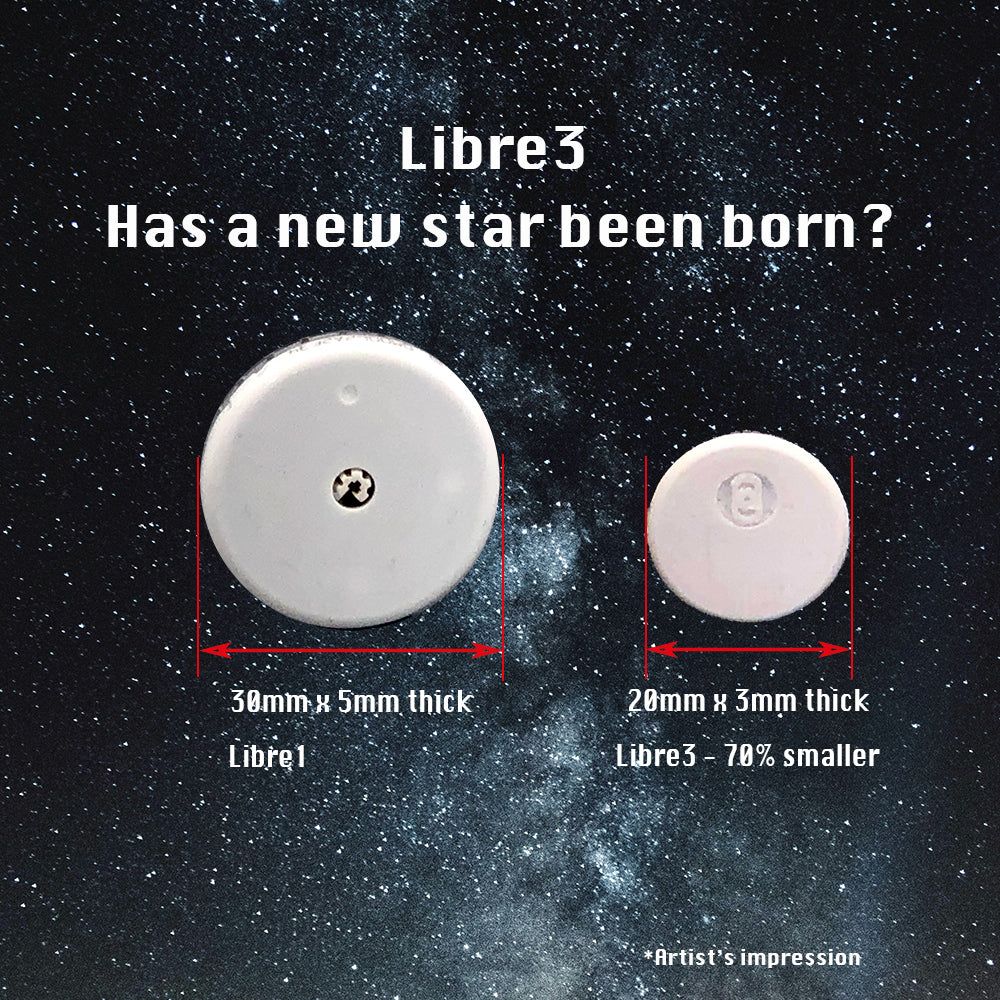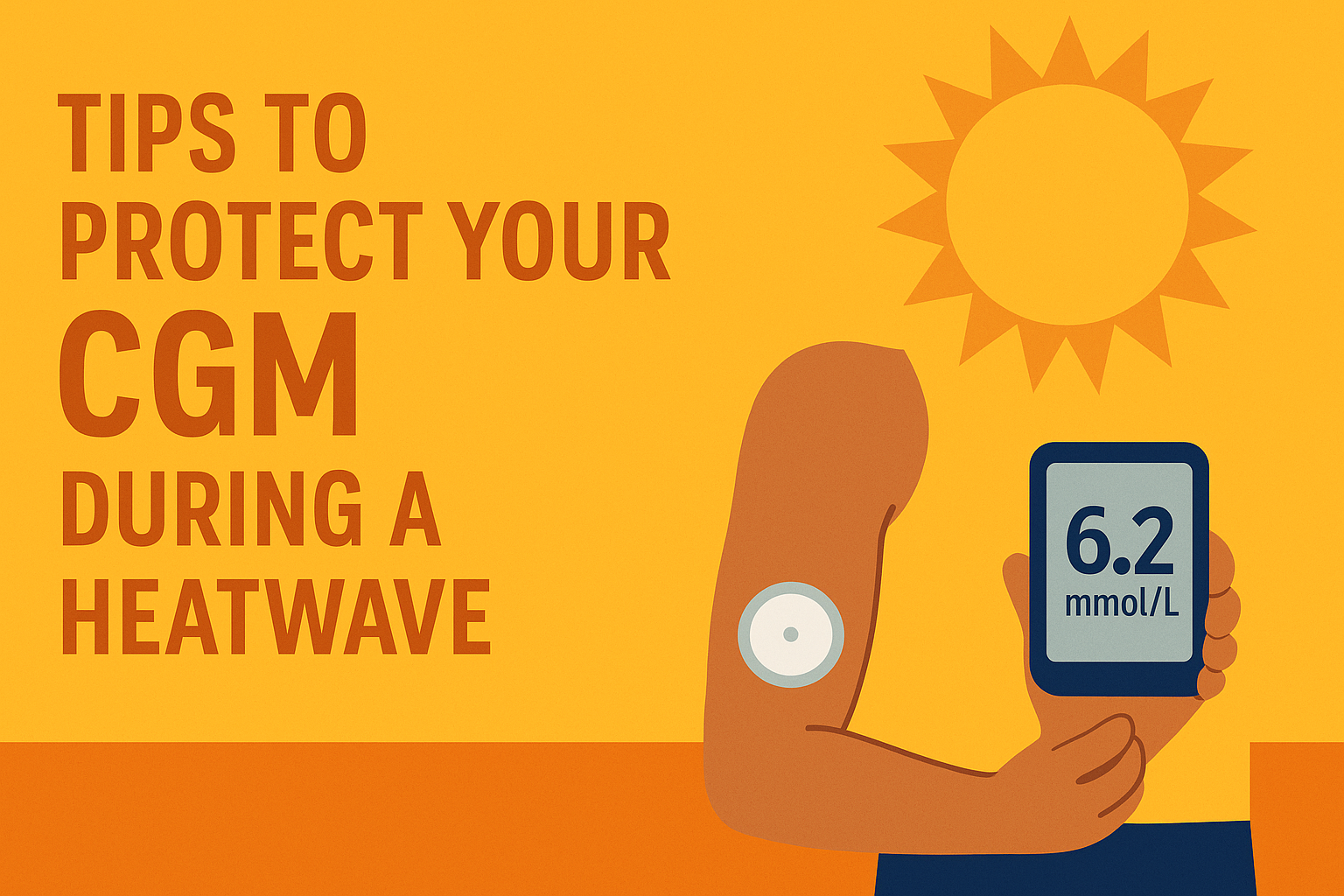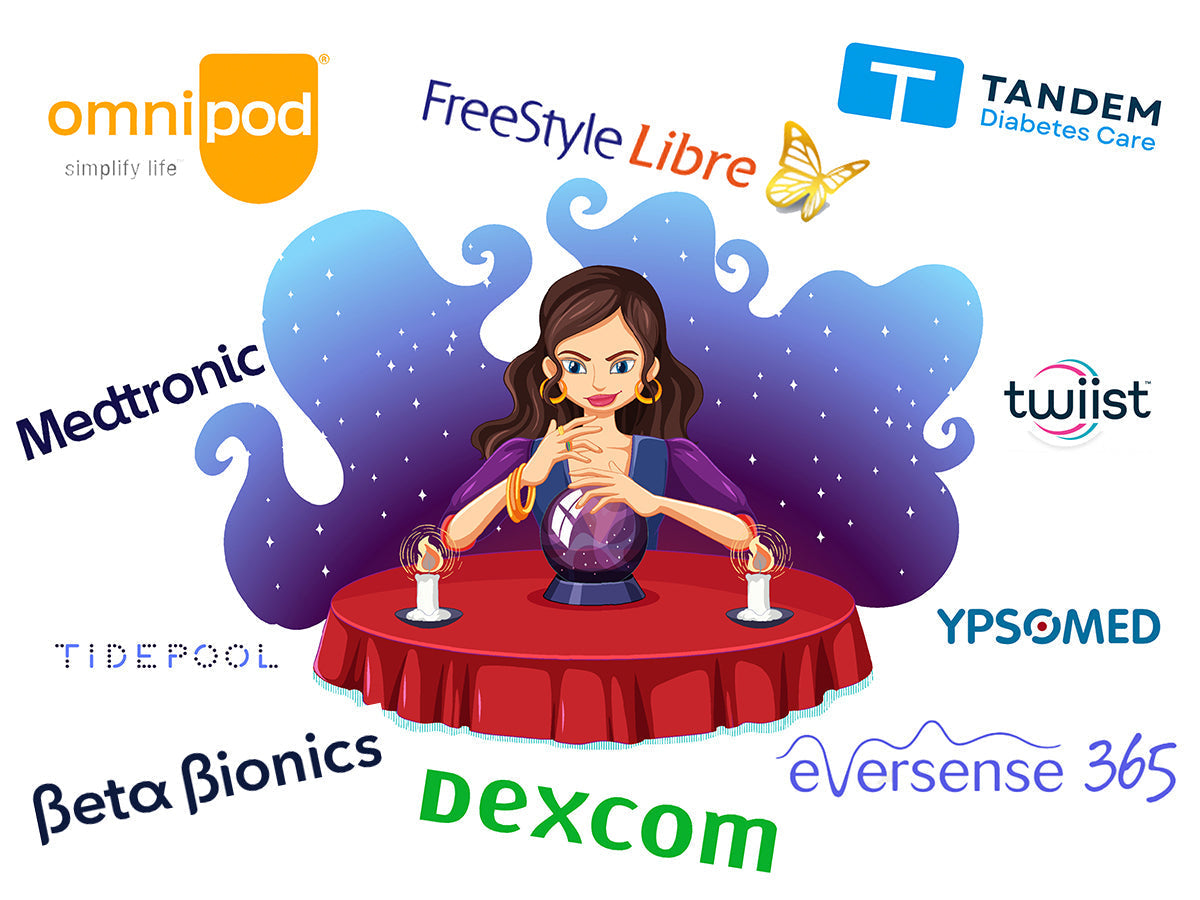
| Blogs and publications on this website are independent of any involvement by medtech companies or diabetes related charities. To ensure there is no bias, we do not accept any products, freebies or other material from any medtech provider. All materials are copyright©️Love My Libre Ltd. |
***
This blog is available as a Briefing on our YouTube Channel available here.
LIBRE 3 GETS CE MARK
Last week’s announcement by Abbott about the FreeStyle Libre 3 has created much hullaballoo in the diabetes community, who desperately await the arrival of Libre 2 with its alarms and have so far only dreamt of having full continuous glucose monitoring with a Libre. Knowing that this is a feature on offer to Dexcom users has previously stirred up strong emotions and the latest news from Abbott has received both euphoric reaction and disappointment.
Although heralded as the launch of the product, it’s not actually at that stage as the press release was to announce that it received a CE marking. This indicates that a product has been assessed by the manufacturer, in this case Abbott, and deemed to meet EU safety, health and environmental protection requirements. It is required for products manufactured anywhere in the world that are then marketed in the EU, including in the UK (standards are unlikely to change due to Brexit). Having said that, it does mean that Libre 3 can now start to be marketed and is set to launch in some European countries in the next few months. For the UK market the product is expected to be available from early 2021, but no specific date or month is given.
This article evaluates the changes coming with the Libre 3 (as far as we know at present) and how this could impact the T1 community.
So, how does it measure up?
The main news from the press release was that Libre 3 will be significantly smaller and Abbott have described it as two pennies on top of each other. This makes it 71% smaller in terms of volume size, and visually will make it appear much more like a button on the arm. An advantage of this is that it will be more discreet but with a reduced surface area it won’t necessarily be easier to keep in place. And, of course there are both pros and cons to not remembering it’s there!
Could it be the ‘silver bullet’?
There are principally three functions that are ‘missing’ from the Libre 1 and these are the main reasons why some users resort to buying their own transmitter and using third party apps albeit these are unapproved for use with FreeStyle Libre. Firstly, there is the frustration that readings from the Libre 1 and 2 are not in real-time. This is resolved with the application of the Libre 3 and real-time glucose levels will be sent every minute to a Smartphone.
Secondly, there is the need to be alerted to highs and lows which was an option added with the Libre 2, although many reports are that the alarms are not quite adequate, mainly due to the limitation of options for alerts at different stages of changing glucose levels – especially noticeable to previous users of xDrip, or Spike etc.
And thirdly, many users also need the capability for others to follow them and know their glucose levels (in real-time), whether its carers, parents, health care professionals or family members. The recent press release only confirmed that there will be a mobile app for the Libre 3 and that is “designed to enable users to capture and view their real-time glucose levels, glucose history and trend arrows…with just a glance at their smartphone”. This functionality is already available LibreLinkUp which we assume will continue and hopefully be enhanced. It would be nice to see some of the data available directly to patients available to caregivers too. It’s also not yet known if there will be changes to the current LibreView app, and if so what these will be.
No scans
One advantage that appears to be a popular move by Abbott, is that the Libre 3 will be using Bluetooth to relay real-time readings to a smartphone. Scans won’t be needed to get glucose readings and a separate handset isn’t required, and I assume not available for use with the Libre 3. This has the potential to throw up a range of other issues as although many of us now see smartphones as ubiquitous in our lives, there are still a significant percentage of the population without such – in the UK around 76% of adults own a smartphone yet globally the number is estimated to be just 45% (2020 data). As expected, in emerging economies such as Latin American countries, across Africa and India, smartphone usage is low and making Libre 3 reliant on smartphone ownership could mean that those needing the Libre to manage their diabetes are unable to access this tech easily or are limited from the latest updates.
Libre 3 in the Workplace
What about places where phones aren’t permitted? It’s not unusual to hear of employers who ban the use of smartphones in the workplace, in particular where there is a perceived security risk or other type of risk such as health and safety. This is also a potential issue in schools whether the person relying on the Libre sensor for glucose readings is a teacher or pupil.
In essence such controls are likely to be unlawful, as they could constitute a reasonable adjustment under the Equality Act 2010, but it’s the potential for conflict initially that is worrying. My concern is whether this will leave a gap in provision or be divisive in enabling diabetes technology to be accessible by all. The practicality of implementation within the UK is largely determined by NHS policies although as we have seen previously with Libre, there is the potential for access to again be down to a ‘postcode lottery’.
Smartphone usage
With a reliance on a smartphone for glucose readings there are other areas that may need to be addressed in practice by individuals and diabetes clinics. Many Libre sensor users (on MDI) use their data to make informed decisions regarding insulin doses. What happens if the phone runs out of charge? What if the user’s network goes down? There are probably a multitude of other scenarios. And that’s assuming that a user’s phone is compatible in the first place as the Libre 3 app will only be “compatible with certain mobile devices and operating systems”.
Too much data
An abundance of data is already available to those with a Libre 1 but with real-time minute-by-minute readings directly to a smartphone there will be 1,440 readings per day, as opposed to 288 using Libre 1.
With some of us struggling with the numbers coming at us ‘thick and fast’ and the related demands of managing our diabetes, these could have a knock-on effect around our future mental health. There are already anecdotal reports of libre sensor burn-out!
The future of CGMs
Third party products on the market such as MiaoMiao, Bubble and Ambrosia Systems, BluCon NightRider have benefitted greatly from the desire of type one’s to get greater control of their numbers and use the alarms to alert them to our-of-range readings as well as get a better nights sleep. As the Libre 3 is now set to connect directly to smartphones using Bluetooth it appears that these devices will no longer be necessary and I envisage this market is likely to ‘evaporate’ quite soon after Libre 3 is rolled out.
Competition
Dexcom G6, the main competitor to the Libre, currently costs over 60% more and although available on the NHS, there are restrictive criteria which has meant that very limited numbers have been prescribed in the UK. Dexcom are due to release the G7 in early 2021 which will be disc shaped rather that the current lozenge form, and slimmer too putting it on a par with the Libre 3. It’s also be hinted at that the 10 day period is to be extended, so we expect this to be an improvement both in terms of convenience and value for money. It will come inside an insertion device ready to be attached.
GlucoMen, a relatively new entrant to the CGM market, has recently started to advertise in the UK and other med tech providers are expected to follow in 2021.
Sustainability
Whilst the reduction in plastic and carton paper goes some way to lessen the environmental impact of the Libre’s production processes, there are many comments in the T1 community on the lack of a proper system to recycle materials, which is left to the end-user and varies depending on local council facilities and policies.
Sustainability means more than offsetting the production costs in terms of environmental damage with the reduction in finger prick sticks. Green credentials and sustainability are becoming more of an issue to users and it appears that these expectations are not currently being met by Abbott.
Conclusion
To conclude, I’ve given a snapshot below of the key take-away points from the limited information we have available on the Libre 3. In addition to the above, it’s expected that there will be a new applicator as the press release by Abbott refers to a one-piece applicator, It’s also known that Abbott have been working towards integrating the Libre with Automated Insulin Delivery Systems so expect this to be available with Tandem and Insulet towards the end of 2021 or later.
If you like the sound of the new Libre 3, then the burning question is when will it be available? Although it’s been 2 years since the Libre 2 received its CE mark and it’s only just becoming available across Europe and imminently in the UK, we’re told that Libre 3 is going to be available in Europe in the coming months. As far as the UK’s concerned we’ve been told ‘soon’ as Abbott are currently “in discussions” with the NHS about its provision.
Another feature we would like to see is that Libre 3 is easier to connect up to a smartwatch so that readings are displayed without the need to have a smartphone nearby. We wait to see if this is an option.
By releasing the recent press release the diabetes community is already eager to know more about the Libre 3 and can only hope that it won’t be waiting too long.
Libre 3 Snapshot:
-
Real-time, minute-by-minute data stream
-
Reduced in size – by 70% volume
-
No reader, no scanning
-
Alarms to alert user to highs and lows
-
Same price as Libre 1 and 2
-
Accuracy based on Libre 2 – MARD of 9.3% over 14 days
-
Use with Automated Insulin Delivery – closed loop
-
Availability – rollout in Europe in coming months and UK soon
| This article is based on information released by Abbott in relation to the Libre 3 (28 September 2020). It is the author’s own view and interpretation of the details available. There is no endorsement of the product, FreeStyle Libre[1] or Abbott. The author is a type 1 diabetic and user of the FreeStyle Libre 1 which is funded by the NHS. |
[1] FreeStyle Libre and Libre Sense are registered trademarks of Abbott Diabetes Care Inc.





Nemonie Rowlands
October 23, 2021
A very informative article. As a DIY closed loop user who uses both the Libre and MiaoMiao as part of my closed loop set up I’m very interested to see how the new Libre 3 will be able to fit into my looping system.
Particularly interested to see if it can make the MiaoMiao redundant as the less products you have attached to your arm the better!